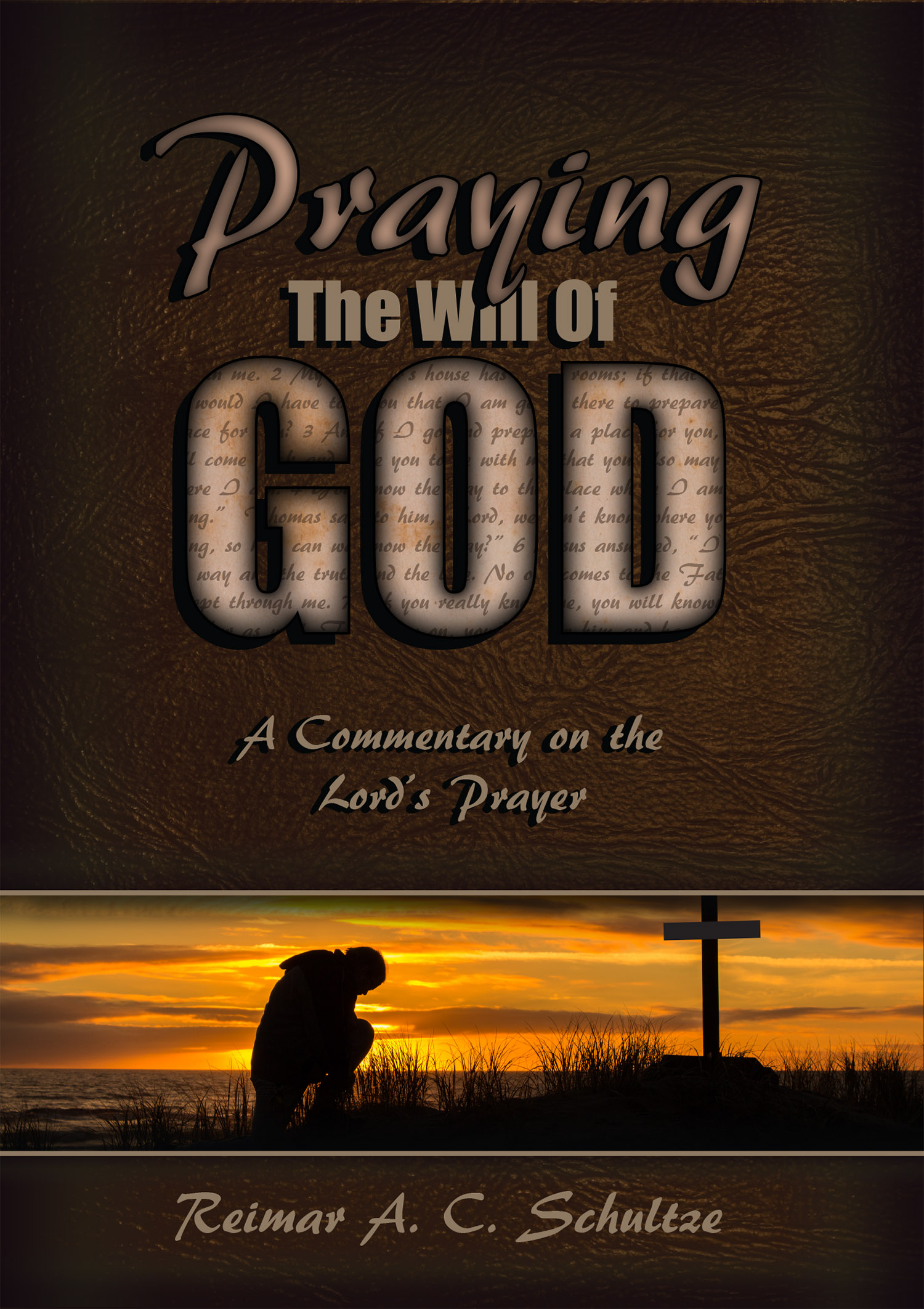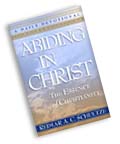
|
I AM Love AUDIO MP3 FORMAT Listen to 11 hours of Pastor Schultze's autobiography in MP3 format.
|
|
Now That You Are Born-Again: What Next? This booklet fits in your shirt pocket and will help Christians and new converts know what they are to do once they are saved. In this booklet, Pastor Schultze also shares the essential spiritual disciplines for a successful walk with God: Daily reading of the Bible, prayer, consistent witnessing , obedience.
|
|
Praying the Will of God The Lord's Prayer is an answer to His disciples' request: "Lord teach us to pray." As a result, our Lord and Savior gave us this prayer to take away all doubt as to which prayers He will answer and which He will not answer. However, this commentary is not only a call to pray rightly, but it also lays the foundation for Christian theology at its best." - Pastor Schultze.
|
|
The Ten Commandments are a gift from God to man, so that man may know how to live with his Maker and with other men. These laws are a moral compass for every soul, a code of ethics for every nation. To neglect them is to invite misery. To heed them is light and joy." - Pastor Schultze.
|
|
Join Pastor Schultze on his amazing journey from "nothing...to all things."
$20.00 Purhase online at our bookstore: |
![]()
CALL TO OBEDIENCE #490
Reimar A.C. Schultze
Past Issues of the Call To Obedience
"Peter's Unforgettable Breakfast"
Reimar A. C. Schultze
Let us focus today on the one breakfast that Peter would never forget. Here is the text:
So, when they had eaten breakfast, Jesus said to Simon Peter, “Simon, son of Jonah, do you love Me more than these?” He said to Him, “Yes, Lord; You know that I love You.” He said to him, “Feed My lambs.” He said to him again a second time, “Simon, son of Jonah, do you love Me?” He said to Him, “Yes, Lord; You know that I love You.” He said to him, “Tend My sheep.” He said to him the third time, “Simon, son of Jonah, do you love Me?” Peter was grieved because He said to him the third time, “Do you love Me?” And he said to Him, “Lord, You know all things; You know that I love You.” Jesus said to him, “Feed My sheep” (John 21:15-17).
As noted, Peter was grievously troubled at this conversation since Jesus addressed him once again with his pre-conversion name: Simon—the old name for the old man. Had Peter not become a new man? Simon, son of Jonah, do you love Me…? Let us face it, by hearing the name “Simon,” Peter felt demoted, yet at the same time in the same sentence, he was also promoted to the highest office of the church, the bishopric. This reminds us of these words from Hebrews: For whom the Lord loves He chastens... (12:6).
But why did Jesus call Peter “Simon” again? Had he not lived up to his new name? After all, he had forsaken all and given his all to please Jesus. Was he not one of the first to know that Jesus is the Messiah; did he not commit himself to die with Jesus; and was he not one of the inner circle and the only one who defended Jesus when Jesus was arrested in the Garden of Gethsemane?
I would call this an impressive record. Surely such credentials do not need to be questioned, especially at such a sacred occasion as at his commissioning service. But oh, after all this proof of Peter’s worthiness, our Lord found a fly in the ointment: it was Peter’s threefold denial in Caiaphas’ courtyard where Peter, when questioned about his acquaintance with Jesus, answered emphatically: “I do not know the man.” It is like you denying the existence of your spouse after you have been married for three years.
Because of Peter’s threefold denial of his Lord, Jesus wanted a threefold confirmation that he truly loved Him. Jesus wanted it and Peter needed it—and all the rest of us also need to be reminded of the magnitude of this sin as Jesus said: Therefore whoever confesses Me before men, him I will also confess before My Father who is in heaven. But whoever denies Me before men, him I will also deny before My Father who is in heaven (Matt. 10:32-33). It seemed like Jesus knew that in the next 300 years under Roman oppression, most Christians would be commanded to deny His Lordship.
When Jesus asked: “do you love Me more than these?” His question focused on two areas: 1) Love for the brotherhood; and 2) Love for things like nets and boats to which Peter had already returned. When it comes to loving Him more than “these,” we know from His previous teachings that “these” included family members (Matt. 19:29). Additionally, “these” would also include houses, cars, vacations and vocations, etc. Again, I believe that in questioning Peter at this breakfast, Jesus is really addressing the whole church, reviewing what must be at the core of discipleship: an unparalleled, uncontested, unadulterated love for our Lord Jesus.
Now we must ask the question: “What caused such a great warrior like Peter to suddenly deny his Lord?” It will help us to know what got him into trouble so that we can stay out of trouble. Remember that just before his denials, Peter boasted that he would never deny his Lord even if others would (Matt. 26:35; Mark 14:31). Sometimes, irrational enthusiasm can lead to pride, to an attitude that we are a cut above others, not remembering that: Pride goes before destruction... (Prov. 16:18). This reminds us that it is one thing for us to put on the apron of humility; it is another thing to keep it on every day.
Also observe Jesus’ straightforwardness in querying Peter. Jesus had no worries that He might hurt Peter’s feelings or that He might lose him over this humiliation. Jesus was never driven by the fear of man. Jesus never attempted to be the sugar of the earth, but the salt of the earth and He asks us to be likewise. Sugar ruins; salt preserves. He talked straight: straight words to the adulterous woman: ...go and sin no more (John 8:11); straight words calling His disciples to follow Him, not “whenever you are ready, follow Me.” Jesus spoke straight words about evangelism: And whoever will not receive you, when you go out of that city, shake off the very dust from your feet as a testimony against them (Luke 9:5). He had straight words for Nicodemus, in spite of Nicodemus gracious compliments: ...You must be born again (John 3:7). Jesus spoke to him with boldness and clarity. He called scribes and Pharisees whitewashed tombs and vipers (Matt. 23:27, 33). He called King Herod a fox (Luke 13:32). He never separated truth from love.
Let us preachers be careful not to seek popularity with men as Aaron did, only to end up with a golden calf. Let us not try to blend in but to stand up and to stand out. Let us be watchmen on the wall. Jesus was a friend of sinners. That is what sinners said of Him at first, but Jesus defined His friendship differently with these words: You are My friends if you do whatever I command you (John 15:14). The crowd loved Him as long as they got what they wanted, but after that it was: ...Away with Him... (John 19:15). And here at this breakfast, we are also reminded that Jesus has no more tolerance for sin than His Father has. As His Father closed the door on paradise to Adam just over a bite from an apple, so Jesus would close the door to the new paradise on the day of Pentecost to anyone harboring any residue of uncleanness in their lives. So, as Jesus did not want His men to miss the power, the joy, the love and the glory at that event, neither does He want you to miss it. Therefore, He will deal with you, if you let Him, to get you there. The soft, sin compromising and ever accommodating Jesus who is preached in many of our churches today is not to be found in the Gospels.
Now, let us examine how Jesus commissioned Peter to be a pastor, specifically to be the bishop privileged to open the church age on the day of Pentecost. Carefully notice the words that Jesus spoke to Peter: Feed My lambs... Feed My sheep. Who are Jesus’ lambs and sheep? They are those who hear His voice and follow Him. Preacher, “feed my sheep” means: do not get sidetracked by attending to the fickle desires of the goats in sheep’s clothing and do not get sidetracked to minister to ...the wise and prudent... (Luke 10:21) for fame or money’s sake. Your commission is to feed the sheep and to lead them across Jordan into the promised land of the kingdom of God. Further, resist the temptation to become a religious entertainer or a program connoisseur. It is the truth that makes people free; therefore be straight and honest with them; yet always keep in mind the example of Jesus, particularly when ministering to those who are broken: A bruised reed He will not break, and smoking flax He will not quench... (Isa. 42:3). Beautiful! Handle them as a mother handles her suckling or as a father handles his prodigal coming home again. In every single instance, we must let the Holy Spirit be our guide.
Then finally, we learn from the Greek that Jesus uses two different words for love here. In the first two questions, Jesus uses the word “agape” referring primarily to spiritual love. The third time Jesus asks Peter using the word “phileo,” that is human love. Jesus not only wanted to be loved in His divinity, but also in His humanity like John loved (phileo) Him and He loved (phileo) John (John 20:2). That means Jesus was looking for the same bond with Peter that He had with John—on the human level. So then, let us love each other, agape and phileo, meaning if someone asks us to go a mile with them, let us not just simply bless them, but go a mile or two with them. Much of the Sermon on the Mount is on phileo love. Take note that the early church loved Paul’s spirituality, but they let him be cold, hungry and penniless physically (1 Cor. 4:11). They lacked phileo love towards their shepherd.
In addition, do not confuse human nature with the carnal nature. The carnal nature must be crucified; human nature must be appreciated and cultivated. It is the vehicle for the spiritual nature. It gives us our God-given identity. It is our connecting point with human-kind. It has emotional needs of its own that need to be met by human friendship. When you have such a friend, you have no hesitation to call him in the middle of the night to share your struggles with him. You can be open; you can be entirely “you” in his presence. Do not try to spiritually hyperventilate to get out of the human nature. God is not in it. It is not healthy. Do not pretend. Be real. Be that person who God has made you to be. As long as you can breathe, you are an earthling made out of mud, yet also created in the image of God. Do not get ahead of yourself.
Simon, son of Jonah, do you love Me? Jesus was asking Peter if he loved Him more than anything else. Thirty-seven years later at the command of Nero, the Roman Emperor, Peter was crucified. Yet, he asked to be crucified upside down not feeling worthy to be crucified as his Lord. What a terrific exclamation mark that was to the fact that Peter surely, surely loved Jesus with the totality of his being. May we all do likewise.
For more newsletters visit my website: www.joyfulabiding.com
HOME • ARCHIVES • CONTACT • WORLD WIDE RADIO • CALL TO OBEDIENCE
• CHILD DISCIPLINE • REIMAR SCHULTZE'S TESTIMONY • WALKING WITH GOD





